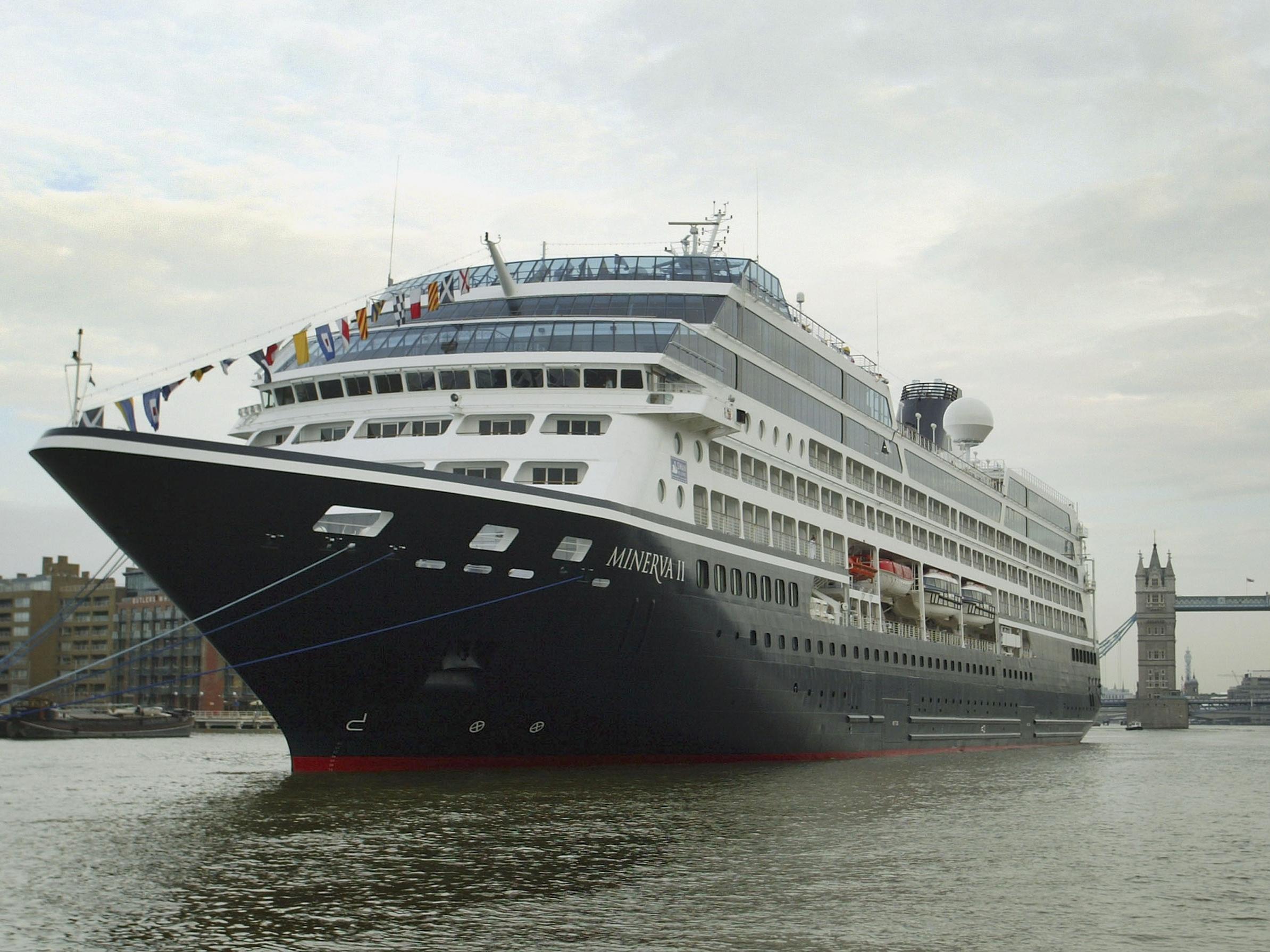Cruise ships still using ‘dirtiest of all fuels’ must be banned in European ports, says environmental group
'In all major port cities in Europe people are suffering from highly polluted air due to the growing cruise industry'

Nearly every cruise ship in Europe is still using high-polluting fuels that harm the environment and human health, prompting calls for ports to ban them altogether.
Of the 77 vessels tested by German environmental watchdog Nabu, just one had avoided using toxic heavy fuel oil the group described as the “dirtiest of all fuels”.
In the UK, cruise ships stopping on the Thames have been a target for local campaigners as each emits the same amount of toxic gases and particulates as 700 lorries.
As there has been relatively little progress in reducing air pollution from shipping in recent years, Nabu has called for action from European ports to prevent these ships from harming people in port towns.
“The ship owners are not taking their responsibility,” said Nabu CEO Leif Miller.
“With friendly words you will not get any changes, so port cities and coastal communities are now asked to ban dirty ships – like Norway is doing for some of their fjords – to protect the people and the environment.”

Heavy fuel oil is the lowest grade product to emerge from refineries, and its use means that emissions of harmful gases from shipping is very high.
Global estimates suggest ships are responsible for 15 per cent of nitrogen oxides and 8 per cent of sulphur gas worldwide. These gases have been linked with a range of health problems including asthma, heart disease and cancer.
“It is scandalous that in 2018 there are still ships coming into the market which are built to use heavy fuel oil as fuel,” said Mr Miller.
“In all major port cities in Europe people are suffering from highly polluted air due to the growing cruise industry.”
As shipping lanes open up in the Arctic due to global warming, environmental groups have called for heavy fuel oil to be banned in an effort to protect polar communities and ecosystems from oil spills and black carbon emissions.
There has been some success in these efforts, with the International Maritime Organisation agreeing to move towards such a ban.
However, closer to home there has been less progress. So far the new build AIDAnova is the only cruise ship to be powered by cleaner liquefied natural gas (LNG).
“The use of LNG reduces harmful air pollution significantly, and residents of port cities and coastal areas will be allowed to breathe cleaner air,” said Dietmar Oeliger, head of transport at Nabu.
“It is praiseworthy that AIDA stepped forward and chose less polluting technologies for their new ships. Now the competitors are also asked to step up and to invest in clean new ships.”
A spokesperson from the Cruise Lines International Association (Clia) said the rankings released by Nabu used a “non-scientific approach” and did not represent the true state of play.
“Nabu and CLIA pursue in principle the same objectives – to lower emissions and protect the environment,” they said. “Where the objectives deviate is in impatience and realism in how fast the industry aims to implement energy efficiency measures, and the availability and cost for such measures.”
They noted that heavy fuel oil had not been used without exhaust gas cleaning systems in the North and Baltic Seas since 2015, and in the worldwide cruise ship fleet nearly half were equipped with so-called 'exhaust aftertreatment systems' to reduce pollutants.
Furthermore, the spokesperson pointed to CLIA's commitment to LNG ships as an example of investment in environmental technologies.
However, Nabu also warned that LNG is not the “salvation” of the shipping industry, as it is still a fossil fuel and their research suggests it is will not make a significant dent in the sector’s greenhouse gas emissions.
“All companies also need to find solutions for cleaning the exhaust gases of their existing fleets as these ships are still the most pressing pollution sources,” said Mr Oeliger.
CLIA said it was committed to seeking “environmentally friendly solutions for our ships that make environment and business go hand in hand in the future”.
Join our commenting forum
Join thought-provoking conversations, follow other Independent readers and see their replies
Comments
Bookmark popover
Removed from bookmarks